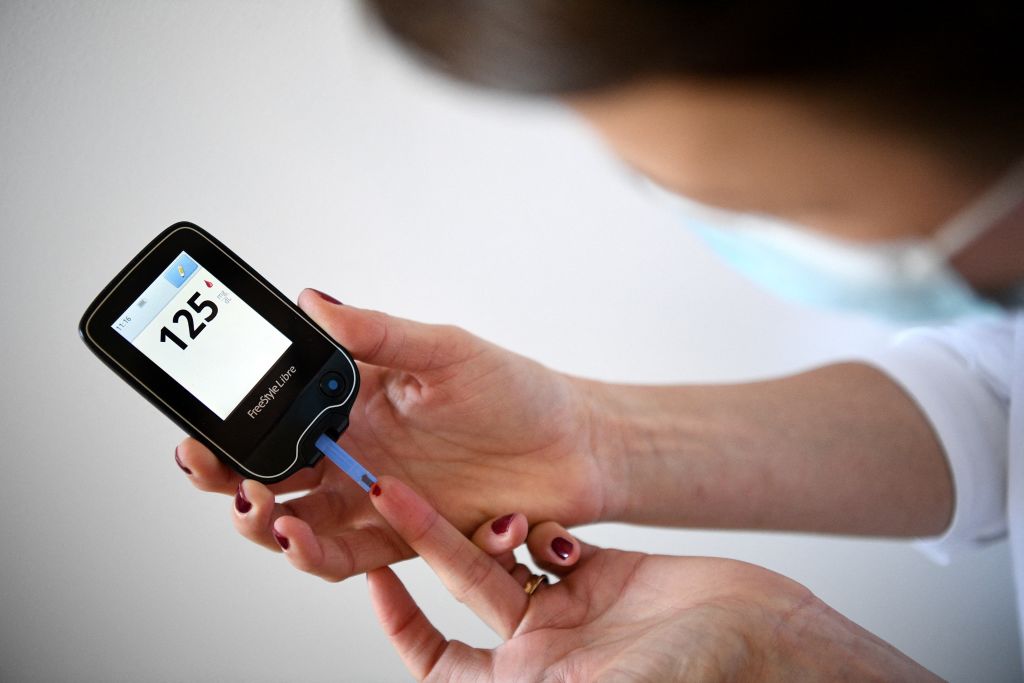Voice Technology and AI Combined to Detect Type 2 Diabetes, Study Finds
A recent study conducted Klick Labs has introduced a groundbreaking method that combines voice technology with artificial intelligence (AI) for the detection of Type 2 diabetes. The research involved utilizing short voice recordings and basic health information to train an AI model to identify individuals with Type 2 diabetes. The model displayed an accuracy rate of 89% for women and 86% for men.
According to Jaycee Kaufman, the first author of the paper and a research scientist at Klick Labs, this study highlights significant vocal variations between those with and without Type 2 diabetes and has the potential to transform diabetes screening within the medical community. It offers an alternative to current detection methods that often require a significant amount of time, travel, and cost.
The study involved 267 participants who were categorized as either non-diabetic or Type 2 diabetic. They were instructed to record a specific phrase on their smartphones six times daily for a period of two weeks. With over 18,000 audio recordings, researchers meticulously analyzed 14 acoustic features to differentiate between non-diabetic and Type 2 diabetic individuals.
Kaufman emphasized the potential of this research in revolutionizing diabetes screening. The technology offers a streamlined and accessible alternative to current detection methods, which often involve significant time, expense, and travel. The study examined various vocal attributes, including subtle changes in pitch and intensity. Signal processing techniques were employed to capture voice changes associated with Type 2 diabetes, and it was found that these vocal variations manifested differently in males and females.
Globally, almost half of the 240 million adults living with diabetes are unaware of their condition, with Type 2 diabetes accounting for approximately 90% of cases, according to the International Diabetes Federation. The standard diagnostic tests for prediabetes and Type 2 diabetes usually require a visit to a healthcare provider and include the glycated hemoglobin (A1C) test, fasting blood glucose (FBG) test, and the oral glucose tolerance test (OGTT).
Yan Fossat, Vice President of Klick Labs and the principal investigator of the study, highlighted the potential of Klick’s non-invasive approach to screening large populations and identifying undiagnosed cases of Type 2 diabetes. This method provides a more accessible and affordable digital screening tool.
Fossat stated that “Our research underscores the tremendous potential of voice technology in identifying Type 2 diabetes and other health conditions.” He further added that voice technology has the ability to revolutionize healthcare practices as an accessible and affordable digital screening tool. Future steps for Klick Labs include replicating the study and expanding research into voice-based diagnostics for prediabetes, women’s health, and hypertension.
This groundbreaking discovery is the result of Klick Labs’ expertise and investment in machine learning, data science, and AI over the past decade, particularly in the field of diabetes research. Their previous study published in Nature Digital Medicine in 2020, titled “Homeostasis as a proportional-integral control system,” explored mathematical modeling to analyze changes in how glucose is regulated. The most recent study has been published in Mayo Clinic Proceedings: Digital Health.
In conclusion, the combination of voice technology and AI has proven to be a promising method for the detection of Type 2 diabetes. With its potential to revolutionize healthcare practices and provide a more accessible screening tool, this research offers hope in identifying undiagnosed cases and improving the overall management of diabetes.

